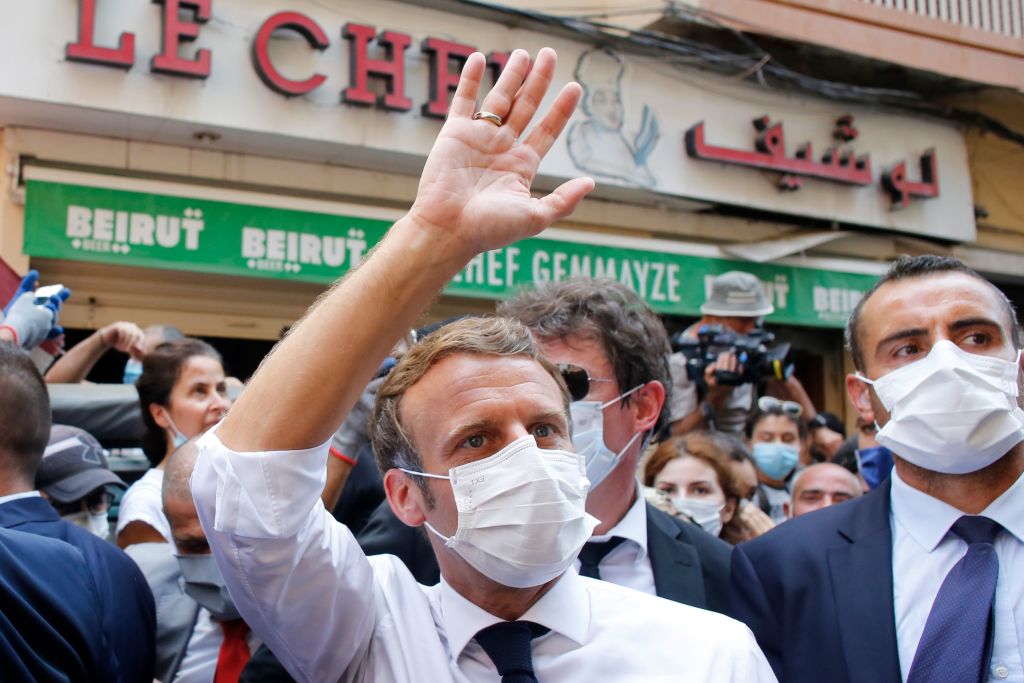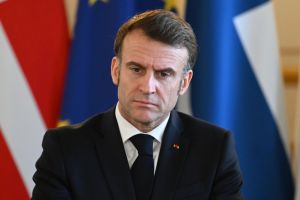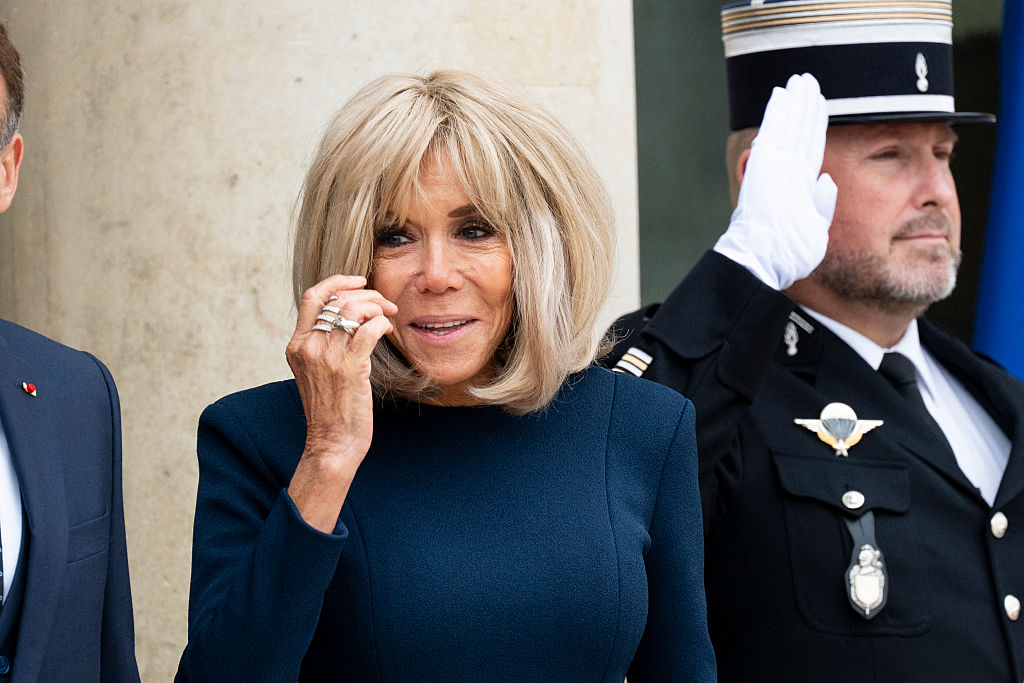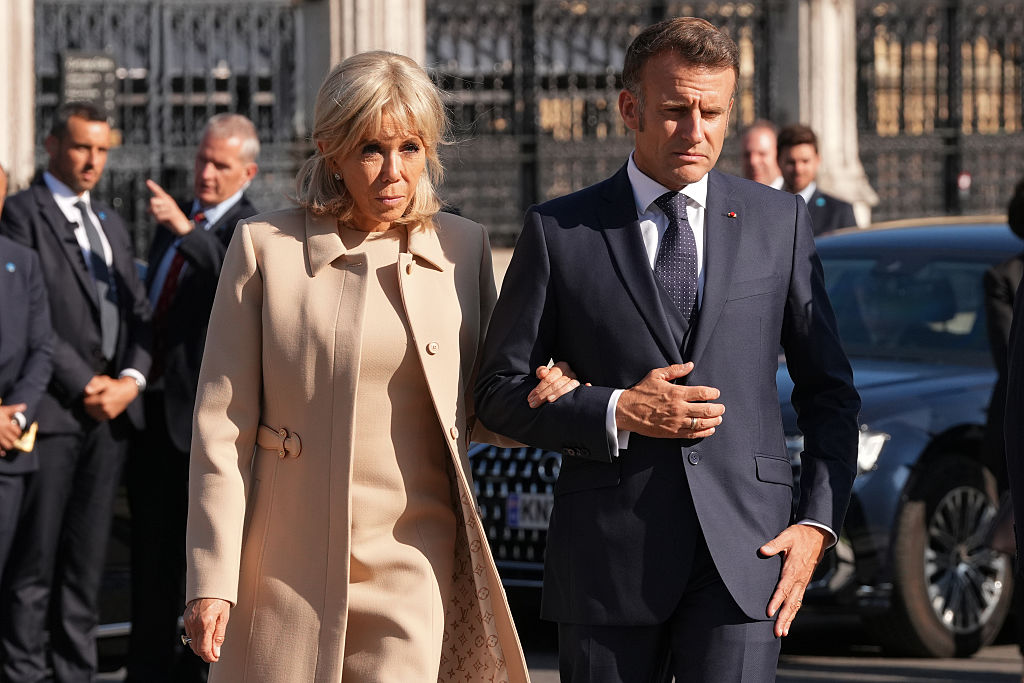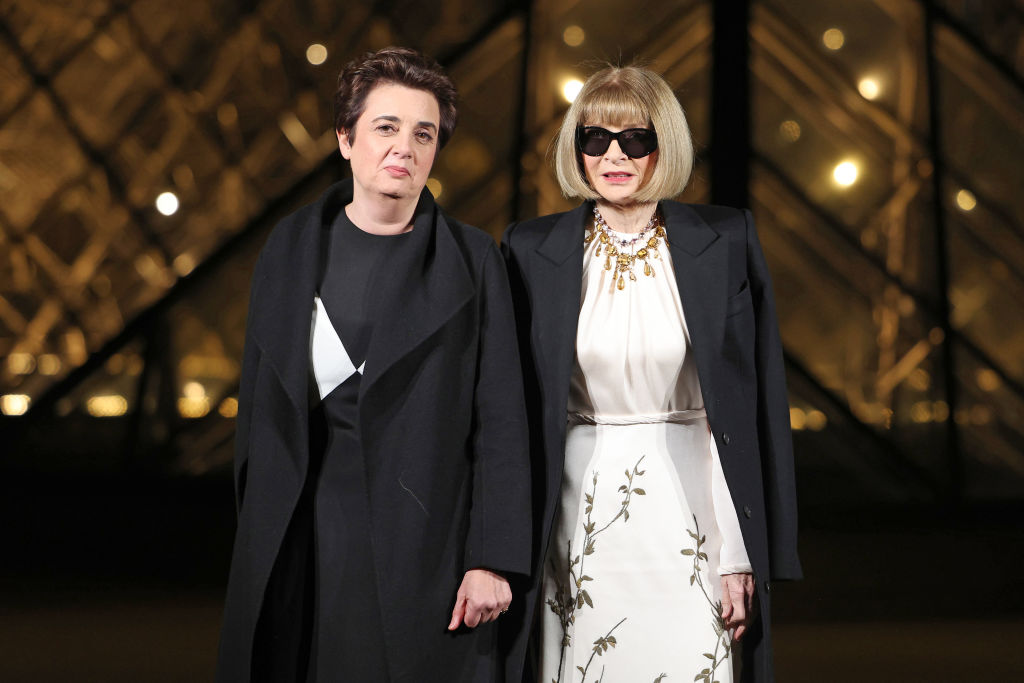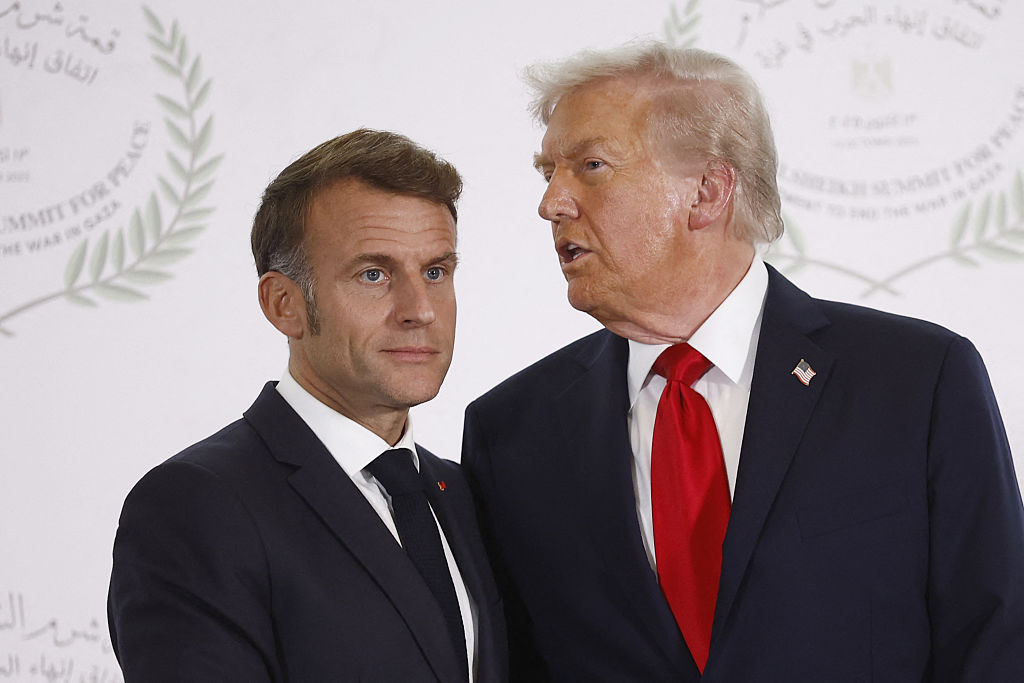President Macron neither lacks chutzpah nor a lust for drama. His walkabout Thursday amid the devastation of Lebanon’s Beirut, following the massive chemical explosion that killed over 150, wounded 5000 and razed a whole section of the city, evoked David Lean’s Lawrence of Arabia with Macron as the strutting Peter O’Toole denouncing the factionalism that had thwarted the unity of the Arab peoples.
‘I am here…to launch a new political initiative’ Macron intoned before shell-shocked crowds baying for a change of regime. ‘I expect clear answers from the Lebanese authorities about their commitments.’ And he warned that he would be back on September 1 to check that aid had been distributed properly and ‘does not fall into corrupt hands’. Meanwhile back in France condemnation of Macron’s stunt spanned the gamut of French politics: ‘Lebanon is not a French protectorate’ came the cry from an array of political leaders from left to right.
It is clear that Macron’s communications director needs a crash course in colonial history and a refresher in gilets jaunes studies. It is an irony of history that this remarkable flashback to France’s imperial past should come in the centenary year of Lebanon becoming a French protectorate at the end of World War One in 1920. The Elysée appears to be suffering from ‘historical deficit syndrome’ (to quote my former doctoral supervisor) in failing to grasp that Lebanon achieved independence from France in 1943, when ironically France was herself under foreign rule.
France, of course, was awarded her mandate over Lebanon and Syria — at the same time as Britain was given Iraq and Palestine — as a result of the secret Franco-British carving up of the Middle East in the notorious Sykes-Picot agreements of 1916, the same agreements denounced by Lawrence of Arabia as contrary to promises made of an Arab national homeland. But this historical irony appears lost on an otherwise historically attuned president.
A further irony of Macron’s Beirut walkabout in contact with semi-insurgent crowds calling for the departure of an insensitive and uncaring elite is the parallel with the gilets jaunes movement. This was not lost on Arab social media where Macron’s hypocrisy was mocked: ‘All France is protesting against the Mac. Yet he will give political lectures to the Lebanese.’
Le Monde also touched on the fact that the Lebanese explosion from unsupervised stockpiles of ammonium nitrate has all the characteristics of the devastating AZF factory explosion in Toulouse in 2001, in which 31 people died.
But historical amnesia apart, Macron is playing a bigger game with his intervention in Lebanon. First, he quickly positioned himself as a prime international player in what has long been a piece of France’s backyard. Second, he has already stated that he will coordinate the European Union’s aid package to Lebanon. Third, he understands the geopolitical microcosm that is Lebanon in Middle Eastern international politics and consequently world politics.
[special_offer]
Shia, Sunnies, Christians and Druzes are supposed to share power equally, but in reality this is based on heads of — often armed — clans bent on retaining their privileges. With Lebanon already in economic melt-down before the explosion the prospect of a return to the civil war that raged from 1975 to 1990 threatens again and more worryingly the direct intervention of the large regional powers, and behind them, Russia, China and the USA. Macron wishes to re-establish France as a stabilizing force in the Middle East, now that Trump has withdrawn from diplomacy in the region, just as there are British calls for Britain to do the same over Lebanon as a tangible demonstration of Global Britain. Macron’s playbook is to keep France in, Iran down and Turkey out. But will he succeed?
Macron had some high-profile success in December 2017 when he skillfully maneuvered to reinstate Prime Minister Hariri after Saudi Arabia orchestrated his resignation. This secured French economic, political and strategic interests; Lebanon hosts a French military base and 900 soldiers under UN mandate as well as being a crucial partner in the refugee crisis.
But the stakes have been upped since. You cannot gainsay Macron’s obduracy or his willingness to have a go, even if his initiatives over the Iranian nuclear deal and backing the wrong candidate in the Libyan civil war have come to nought. Often with Macron his failure comes down to poor communication at home and abroad. Arrogance and lesson-giving spoil the policy. Certainly in the case of Lebanon less of the Lawrence of Arabia and more humility would be a start to really helping the Lebanese people and ensuring their country does not become a battleground once again.
This article was originally published onThe Spectator’s UK website.



